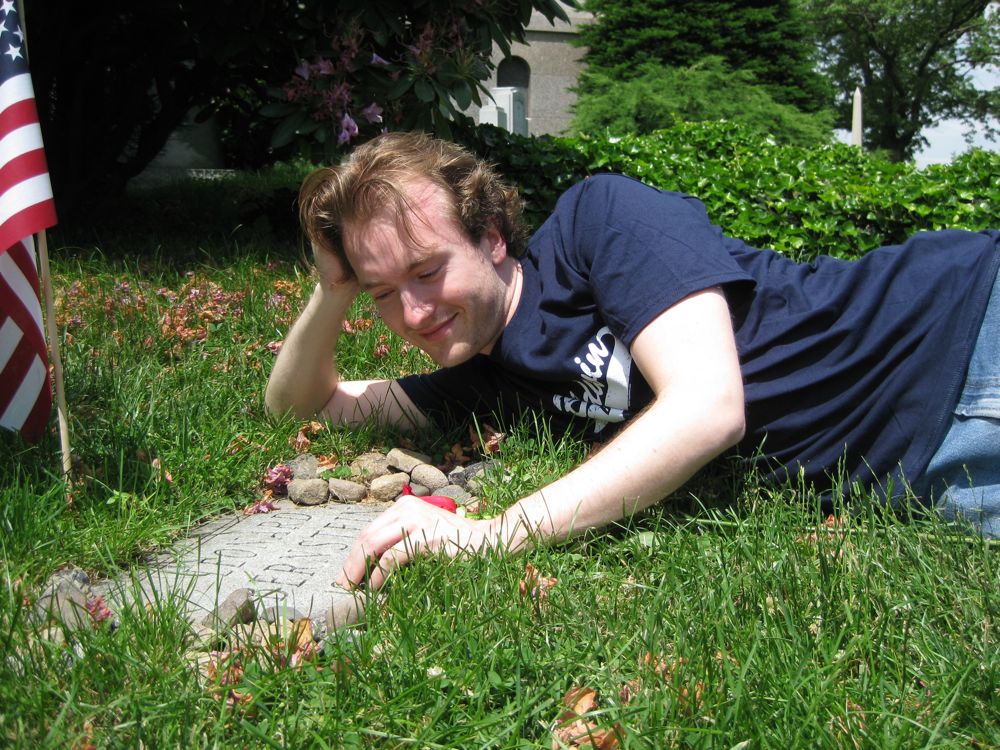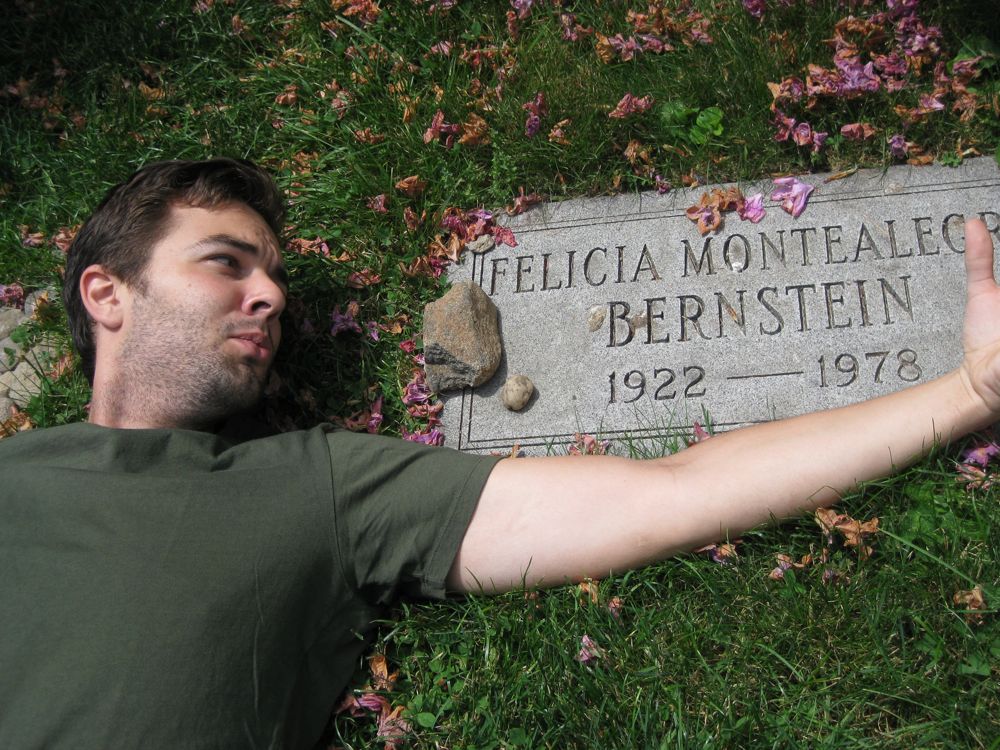I normally try to ignore the random angry missives sent to me from cyberspace, but every once in a while I get to feeling kind of frisky and internet-bellicose. So here goes nothing:
In May of 2009, a piece of mine was released on a CD. The album was reviewed rather favorably in the press, including a review in Fanfare Magazine by a contributor named Jerry Dubins. The album included a piece by a colleague of mine, one Egon Cohen.
Mr. Dubins’ wondered about Egon’s piece,
why a young, Jewish composer would be drawn to this deeply Roman Catholic 13th-century sequence that meditates on the suffering of the Virgin Mary. Surely, as Rochberg and many other Jewish composers have, Cohen might have found an equally moving text from the Hebrew liturgy.
I took issue with this comment on my blog, because, well, it just doesn’t seem like a germane thing for a music critic to second-guess a composer’s choice of text based on nothing more than an assumption about the composer’s cultural or religious identity. I wondered if Mr. Dubins would lodge such a complaint against Mendelssohn’s Christus or Max Bruch’s Kol Nidrei on the same grounds.
Well lo and behold, because the internet is a crazy place, TWO YEARS LATER, I get an e-mail in my inbox from one Jerry Dubins. He writes:
Well um, excuse me, Mr. White. But Mendelssohn did write a very popular oratorio based on the biblical story of a Hebrew prophet. The work is called Elijah. But then I’m sure you already knew that, which is why your question makes no sense.
Right, so a) you are excused, b) yes I did know that, and c) I’m pretty sure you missed my point entirely, so let’s see if I can clarify:
A music critic’s job is to review the music that a composer did in fact write. You might begin by trying to figure out what the composer set out to accomplish in his or her piece. Then you might ask if he did it well. You might try to describe the experience of listening to this music on a visceral or intellectual level.
This particular review involved a vocal work, one in which a pre-written text was set to music. So yes, the composer’s choice of text is a perfectly valid compositional element to comment upon. It’s essential to the composer’s work.
Now, if you feel that the composer did not do justice to the text that he chose, so be it. If you have cause to suspect that the composer’s personal background may have adversely effected his setting of the text, we get into a little bit of a danger zone, but there could still be valid room for criticism. There’s a lot to be said, for example, about the fraught relationship between Mahler’s Jewish heritage and later conversion to Christianity and how that affected his music. It is a well-documented subject and one rife with interest.
In his review, Mr. Dubins suggests that Egon ought to have found a suitable Hebrew text to set simply because he (Egon) is Jewish. Actually, since I’m assuming that Mr. Dubins never interviewed Egon, it’s more likely that he assumed Egon was Jewish because of his name.
Is this really the purview of the music critic? Mr. Dubins states in his review of Egon’s piece that,
The music effectively captures the doloroso character of the text.
So, that’s great then! That’s music criticism. Not very insightful music criticism and not very much of it, but music criticism all the same. Speculations about the source of another text that the composer might have chosen instead is not music criticism, and it doesn’t belong in a magazine purporting to publish the same. If Egon’s piece ‘effectively captures the doloroso character of the text,’ what does it matter if he is a Jewish, Catholic, Hindu, or Lithuanian Orthodox composer?
In regards to Mr. Dubins’ point about Mendelssohn’s Elijah, I’m not sure I quite get it. Is he implying that, because the Jewish-heritaged Mendelssohn also wrote an oratorio on a Hebrew subject, he earned the right to compose another one on a Christian subject? That doesn’t exactly make sense to me, but when logic’s off the table, it’s hard to figure out what’s going on.











